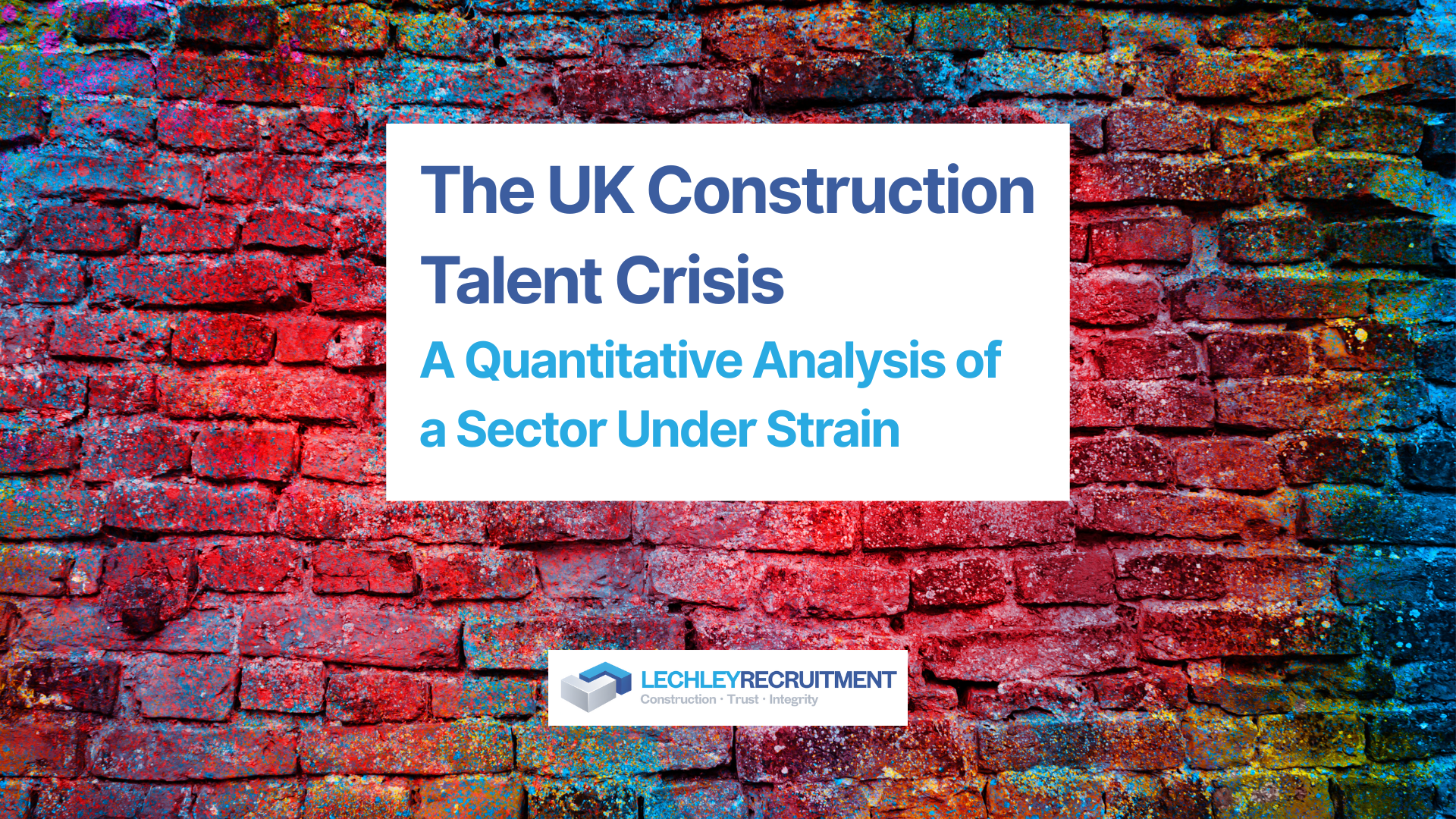"Transforming Construction Management: A 5-Year Roadmap to Increasing Profit Margins Without Scaling Turnover"
Introduction
In the fast-paced construction world, adapting to market changes, implementing innovative practices, and nurturing strong leadership have never been more vital. With the UK construction industry facing challenges like never before, this report focuses on transforming construction management. The goal is to pave a 5-year roadmap to increase profit margins without scaling turnover, emphasizing building a world-class leadership team to increase returns significantly.
Over the next few editions of Lechley is Building Futures, we will go into more depth and discuss the areas outlined below in more detail.
Disruptive Ideas About How Things Are Changing
The construction landscape is shifting, and these changes present both opportunities and challenges:
- Emerging Technologies: Integrating AI, Automation, and IoT reshapes construction processes.
- Innovative Construction Methods: Offsite Manufacturing and 3D Printing offer efficiency and sustainability.
- Sustainability and Social Responsibility: These are becoming competitive advantages rather than obligations.
- Collaborative and Agile Leadership Models: A more adaptive leadership approach is required to navigate the industry's complexities.
Key Insights to Be Aware Of
Understanding the broader context is crucial:
- Global and Local Economic Indicators: These directly impact construction demand and supply chains.
- Talent Development and Retention: Building and retaining a skilled workforce is crucial for sustainable growth.
- Strategic Partnerships and Alliances: Collaboration can unlock new opportunities.
- Regulatory Changes and Compliance Considerations: Staying ahead of legal requirements ensures smooth operation.
- Opportunities for Margin Growth: Identifying areas where profitability can be enhanced without scaling up operations.
Building a World-Class Leadership Team
Leadership plays a pivotal role in driving profitability:
- Defining Leadership Excellence: Identifying the skills and traits that make successful leaders in construction.
- Strategies for Leadership Development: Training, mentoring, and continuous learning are essential.
- Creating a Culture of Continuous Learning: Encourage innovation and flexibility.
- Aligning Leadership Goals with Business Objectives: Ensuring that leadership efforts directly contribute to profit margins.
- Case Studies of Success: Learning from organizations that have successfully transformed their leadership approach.
A Method for Change
Change must be methodical and strategic:
- SWOT Analysis: Understanding the current landscape is essential for informed decision-making.
- Strategic Planning and Execution Framework: A roadmap for implementing change.
- Integrating Technology and Process Improvement: Leveraging technology can increase efficiency.
- Collaborating Across Departments: Cross-functional collaboration ensures effective changes across the organization.
Action Steps
Clear steps for implementation:
- Clearly Defined Goals: What are the short-term and long-term objectives?
- Practical Steps for Implementation: A step-by-step guide for achieving those goals.
- Establishing Metrics and KPIs: Regularly measure progress.
- Communication and Engagement Plan: Ensure everyone is on board with the changes.
Handling Setbacks
Being prepared for setbacks is key to resilience:
- Identifying Potential Risks and Challenges: What might go wrong, and how can it be mitigated?
- Building Resilience: Encouraging a culture that learns from setbacks.
- Case Studies: Learn from past mistakes.
- Strategies for Continuous Improvement: Adapt and evolve as required.
Conclusion
Transforming construction management to increase returns without scaling turnover significantly requires understanding the industry's disruptive changes and a methodical approach to change. Building a world-class leadership team is essential, acting as both a driving force and a stabilising influence.
The next five years will undoubtedly bring challenges, but they offer unprecedented growth and profit enhancement opportunities with the right approach. This report provides a roadmap for that journey, paving the way for a more profitable, innovative, and resilient future in construction management.





